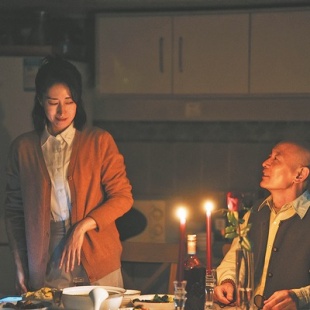Blogging taxi driver takes road to fame


"For many families, they share one courtyard with neighbors and have to go out to use communal toilets. Residents frequently run into each other. If nobody speaks, it can create pressure and lead to anxiety. Therefore, they rely on conversations and jokes to navigate life more smoothly," Ning explains.
Moreover, the film aims to capture how everyday individuals navigate the challenges of embracing a modern era dominated by livestreams, short videos and online commerce.
Ning, seeking insights through his observations of daily life, recalls several instances that shed light on this dynamic. Intrigued by late-night livestreamed plant sales, Ning watched sellers diligently maneuvering electric bikes across fields to fulfill customers' requests for close-ups of saplings. Similarly, he observed a grill restaurant owner fervently promoting her dishes to just a few online viewers. Even Ning's shy and introverted nephew, who is recruited as a livestreamer to sell vehicles, found his primary audience to be Ning's own relatives, who needed to support the young man as he struggled to attract enough customers.
"Though the internet has reshaped our lives, it's heartening to witness the resilience and fervor of ordinary individuals in the face of difficulties and challenges. Every single one of them is working hard to keep pace with the changes of the era," reflects Ning.
Interestingly, the courtyard of Zhang, the protagonist, was filmed within a hutong near Zhihua Temple, a Buddhist temple constructed during the Ming Dynasty (1368-1644). The backdrop of the sweeping and fluid Galaxy SOHO complex, designed by the late Iraqi-British architect Zaha Hadid, adds a metaphorical depth to the film.
Director Xu explains that this deliberate contrast aims to convey a message about the potential for harmonious coexistence between tradition and modernity in a vibrant metropolis like Beijing.
Contact the writer at [email protected]





































